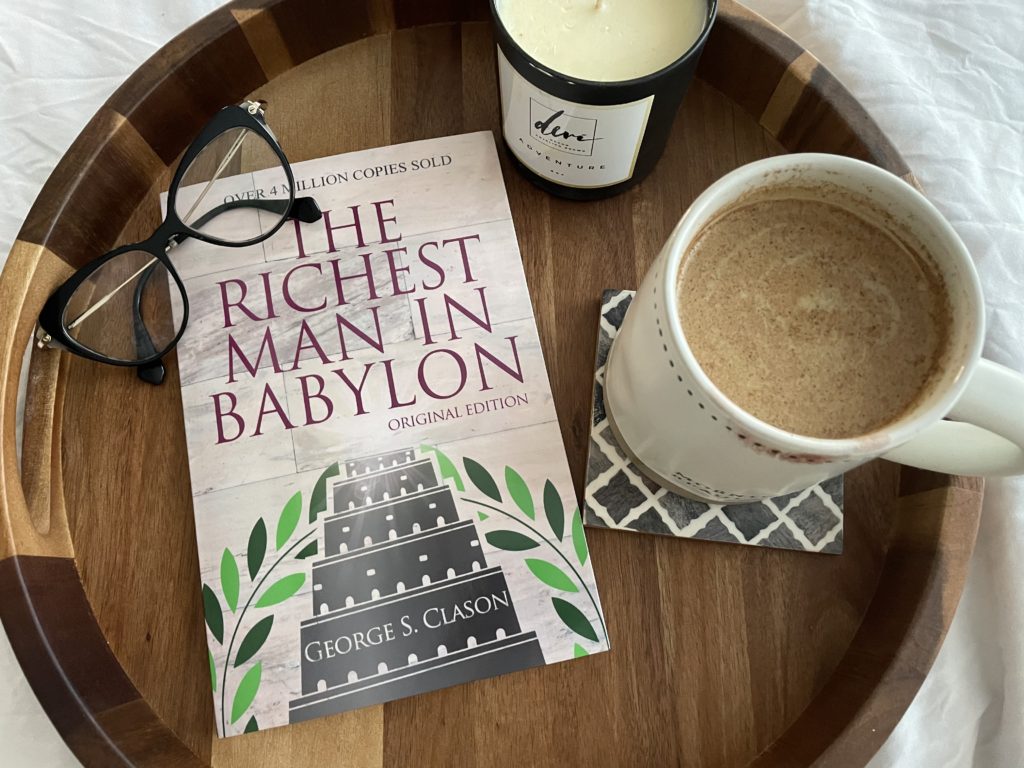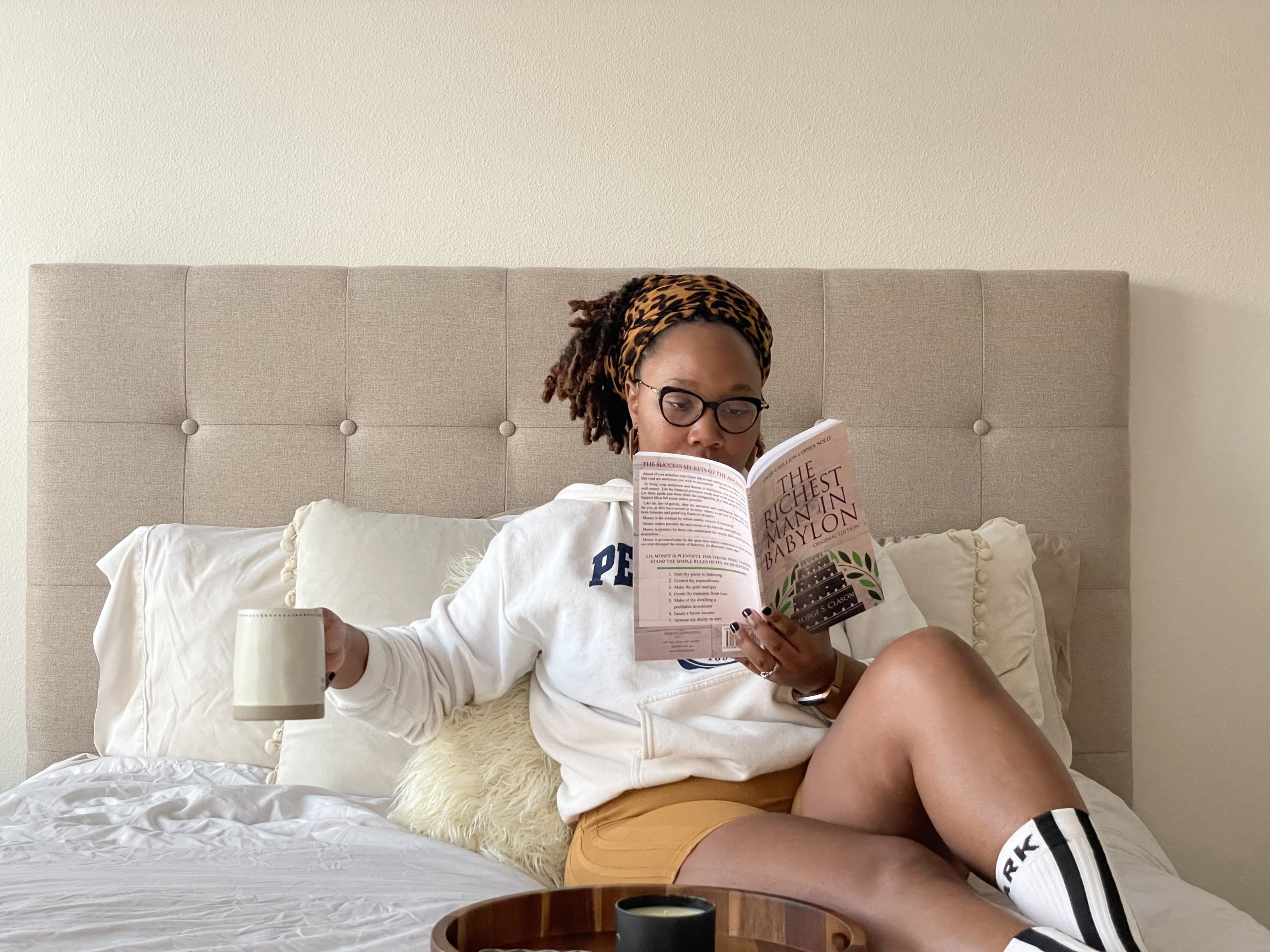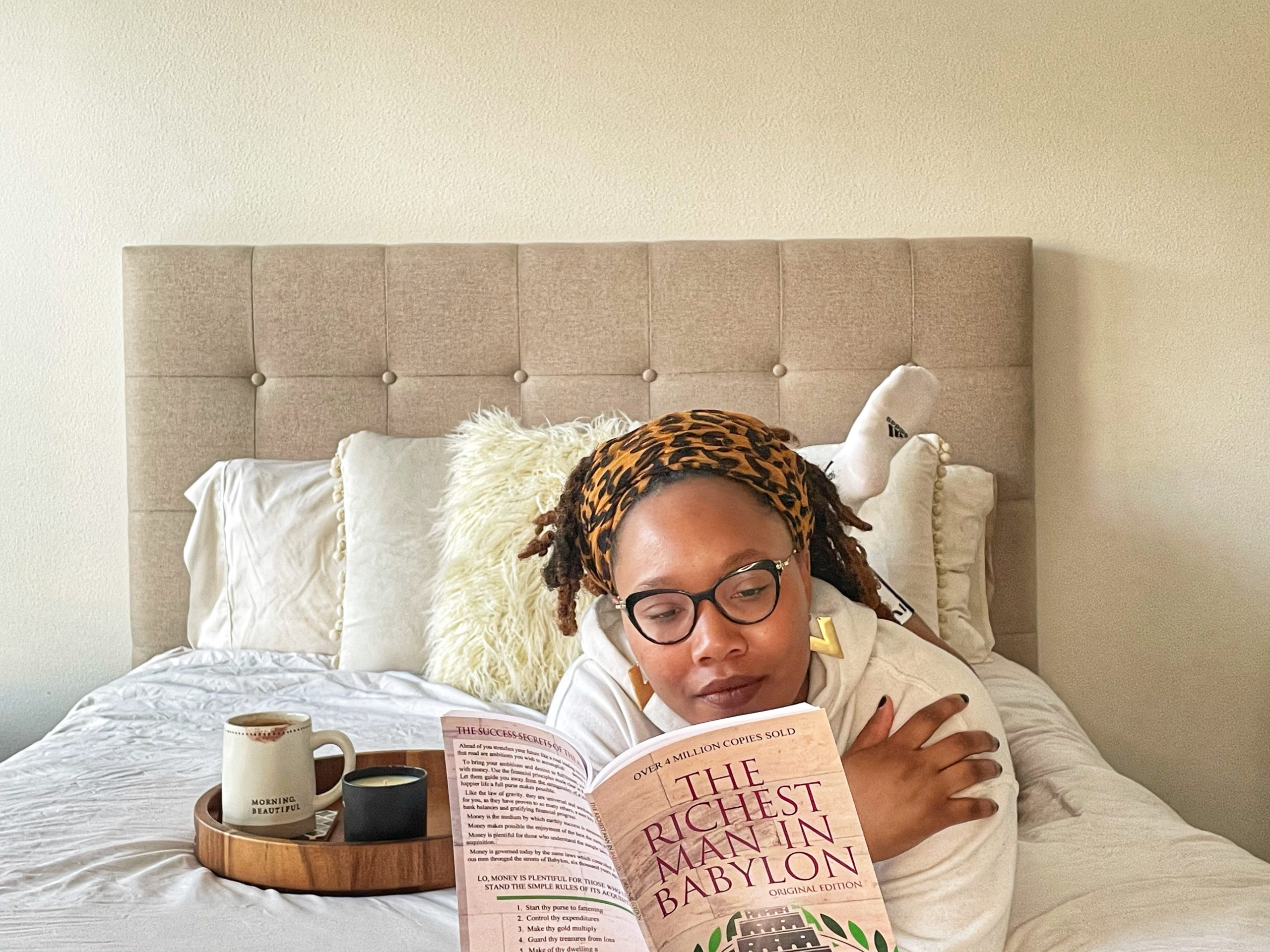This post may contain affiliate links and I may earn a small commission when you click on the links at no additional cost to you. As an Amazon Affiliate, I earn from qualifying purchases.
When I was 24-years-old, I took a personal finance course in a suburb of Philly. Though I lived in Delaware at the time, I’d take the train down every two weeks for the course. I remember bumping heads with friends because I decided not to go out the day before the course. It wasn’t that I didn’t want to hang out with them. At that time in my life, I desperately needed to prove to myself that I could finish something on my own. I didn’t want help from my love who was doing e v e r y t h i n g for me. And I didn’t want help from my family and friends. I needed to do it for me by myself.
Though that was *cough cough* years ago, taking that course is still one of the best decisions I’ve ever made. It forced me to take control of my finances while committing to a life of financial literacy. Over the years, I’ve supplemented that introductory course with personal finance books.
If you’re looking to enhance your financial literacy, here are three of my favorite personal finance books:
The Richest Man in Babylon
In 2019, when family gatherings were safe, I gifted all my siblings a copy of George S. Clauson’s book. This small, but mighty book changed the way I viewed my finances. I realized that money and credit are more than something you need to buy something else. They are tools that if used well, will help you achieve your goals in obtaining personal wealth.
The best part was that I was able to witness a shift in my love after reading this book. I’d never seen him so determined to not only pay off his debts but spend less on his second love, sneakers. And believe me, that was a HUGE feat. The Richest Man in Babylon helped us get on the same page when it came to our finances. As two different people with different experiences, we had different ideas about money. I’m sure many of you can relate.
If so, this book is less than 100 pages and even children can understand it. So much so, that when I gifted this book to my siblings, it was in the hope they would pass it to their kids. That way, they can have a different starting place with money than we did.
Published in 1926, Clauson’s book is still lauded as one of the most essential finance books to own. Find out why by grabbing your copy of The Richest Man in Babylon.
The Index Card: Why Personal Finance Doesn’t Have to be Complicated
Repeat after me: Personal finance doesn’t have to be complicated. And if someone is trying to make you think it is, they’re likely trying to sell you something. Sorry, not sorry.
Anyway, the concept of this book is easy. Everything you need to know about personal finance can be a shortlist scribbled on an index card. In fact, one of the writers did that and posted it online. The post went viral and the list was further explored in this very book.
My favorite chapter in the book was about life insurance. The chapter emphasized the importance of having it regardless of your age. It also reinforced the importance of having the right amount with a breakdown on how to figure that out. To be clear, life insurance and an investment are two different things and should remain that way. Also, life insurance was never designed to be something owned for the rest of your life.
I know I know that is contrary to the name and what you’ve heard your entire life. Trust me, if you read this book, you’ll view life insurance differently. It’s also possible that you’ll save money on your policy with what you learn from the book. Grab a copy of The Index Card: Why Personal Finance Doesn’t Have to be Complicated.
Broke Millennial Takes on Investing: A Beginner’s Guide to Leveling Up Your Money
Where do I begin? If you know my story, you know that I struggled for y e a r s. Nine long years to be exact. That’s in spite of me earning my bachelor’s degree at Penn State (We Are!). So, when I say I relate to the “Broke Millennial” part, I’m so serious.
Here’s the thing:
Growing up, the stock market seemed to be a sure way to lose your money. I mean, my parents have said things like “I know not to invest in stocks” when asked about their finances. Not to mention, television shows and movies always focus on the anxiety around the volatility in the market. So, believe me when I say that I don’t want to lose my money. That’s why I bought Erin Lowry’s book.
My biggest takeaway from the 250-page book was that the stock market is cyclical. If you’re invested in your company’s retirement plan or an IRA you likely learned that in March and April of 2020. That’s when the market took a huge dip and speaking from experience, it wasn’t looking good. I failed to rebalance my portfolio when my love told me to and lost thousands of dollars in days.
Now that the stock market has bounced back a bit, like me, you’ve probably even earned some gains. That’s great news, but keep in mind that the stock market may take another dip. Nobody knows when or why, but what’s important is that you dollar-cost-average and ride the wave. That’s what I did, which believe me, was hard, but I didn’t want to lock in those losses. So, the next time the stock market takes a dip, I hope, you too, will ride the wave. After all, that’s when stocks are on sale. And who doesn’t’ like a good sale? To brush up on your investing vocabulary, grab a copy of Broke Millennial Takes on Investing: A Beginner’s Guide to Leveling Up Your Money.





